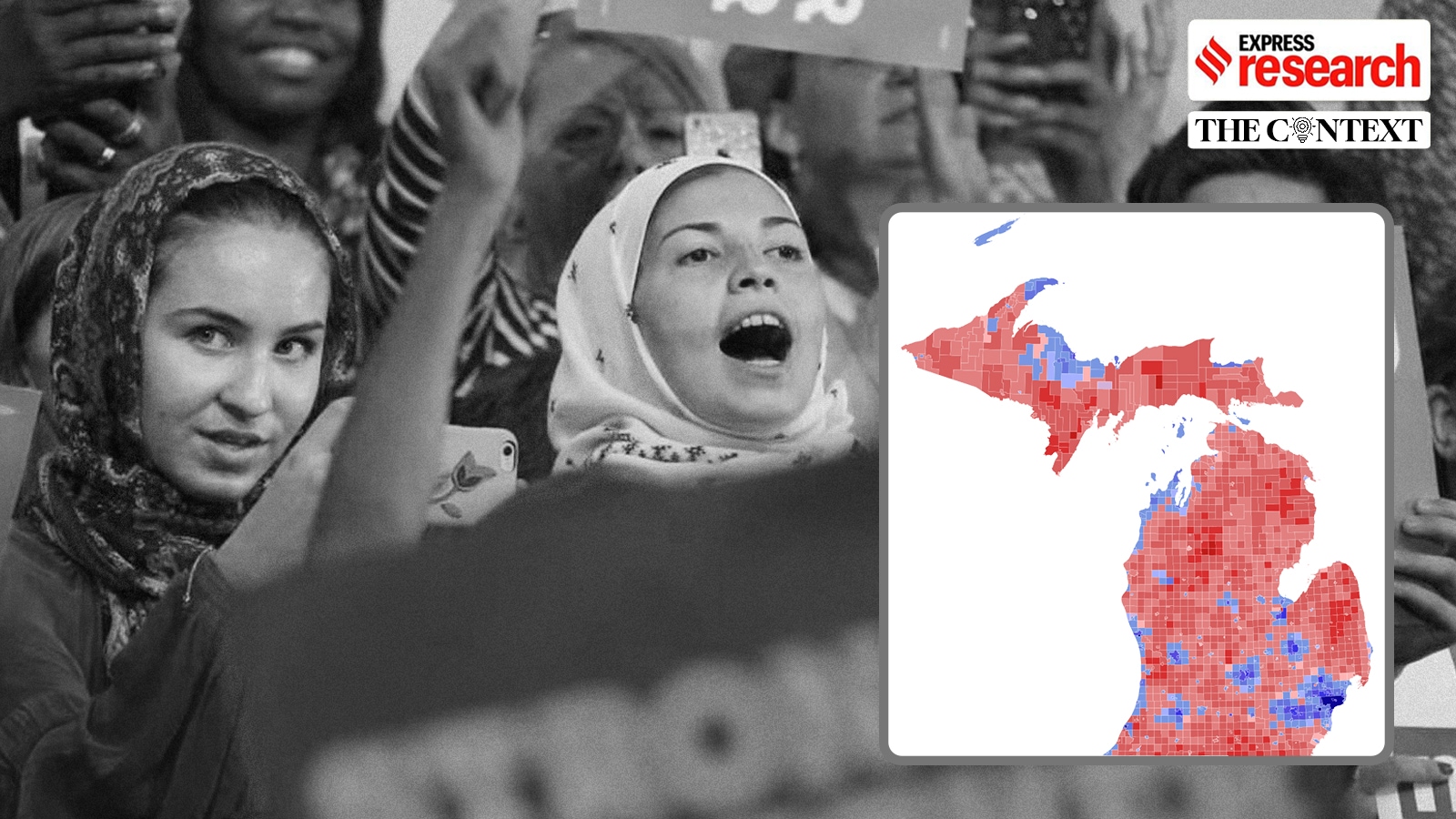Michigan’s political landscape is increasingly shaped by a diverse coalition of voters whose choices often determine the US presidential election. Among them, Black voters and the state’s sizeable Arab American population are crucial, particularly amid growing discontent over the Joe Biden administration’s handling of the Israel-Gaza conflict. Recent polling from late September and early October signalled that former US President Donald Trump was gaining ground among Arab American voters, with a narrow lead over Vice-President Kamala Harris – an outcome confirmed by results on Wednesday with Trump leading with 49.8% votes.
Home to one of the largest and most diverse Arab American communities in the US, Michigan is also one of the few states that officially recognises Arab Americans as an ethnic and underserved group—underscoring the political significance of this electorate.

The origins of Arab migration to Michigan
The story of Arab Americans in Michigan begins at the dawn of the 20th century, shaped by economic opportunity, industrial growth, and the strategic vision of one man — Henry Ford. Prior to the 1920s, the area that would become Detroit was relatively quiet, a far cry from the bustling industrial hub it would soon become. It all changed when Ford, seeking labour for his newly relocated Ford Motor Company, turned to immigrants from the Middle East to fill his factories.
As the Model T revolutionised the automotive industry, Ford’s factories attracted workers from around the world. As journalist Dorothy Hernandez noted in a BBC article in April this year, the industrialist was known for discriminating against African Americans and Jews in his hiring practices, instead turning to newly arrived Middle Eastern immigrants in the Detroit area. Ford’s generous $5-per-day wage lured these workers seeking better lives, leading to the growth of one of the largest and most vibrant Arab American communities in the US, particularly in Dearborn.
Dearborn, once a small suburban community, quickly transformed into a bustling cultural hub. “The five major groups of Arab immigrants to the United States”, academic Rosina J Hassoun says in her book Arab Americans in Michigan, include, “Lebanese, Iraqis, Palestinians, Muslim Yemeni, and North Africans.” In fact, as per the 2020 Census, over 54 per cent of Dearborn’s population claims Middle Eastern or North African ancestry, making it the largest concentration of Arab Americans in the US.
Chain migration and cultural transformation
According to Hassoun, the migration pattern that brought immigrants to Michigan followed a common theme known as chain migration. Typically, a male member of the family would arrive in the US, secure employment, and then send for relatives to join him. Over time, entire families and extended networks would follow, further bolstering the Arab American community. This migration process continued into the late 20th and early 21st centuries, with significant waves of immigration until the early 2000s, despite challenges posed by shifting US immigration laws and geopolitical factors.
As successive generations of Arab Americans settled in Michigan, they maintained strong familial and cultural ties. The community flourished not only through labour but also through the creation of local businesses, religious institutions, and social organisations that served as pillars of support for new arrivals. Restaurants serving shawarma, hummus, falafel, and baklava became common in Dearborn.
Story continues below this ad
Amid the ongoing Israel-Palestine conflict, Michigan’s Palestinian and broader Arab communities hoped for support. Reflecting on the election, Trita Parsi, former president of the National Iranian American Council, said in an interview with indianexpress.com: “I don’t think many people genuinely believe Trump would be better for Michigan… but Harris hasn’t said much. Where is the hope that she is different from Biden? All she needs to say is that the killing needs to stop. Even if she holds a different stance than Biden on the Israel-Palestine issue, she hasn’t shown the strength to speak out, and instead seems to have been bullied into doing whatever the pro-Israel lobby wants.”
As Parsi suggests, voters in Michigan may not see Trump as a solution either. Yet, many may feel it may be better to vote for someone who at least seems to represent their position—however imperfectly—than to back a party that, in their view, is complicit in the ongoing violence.

































